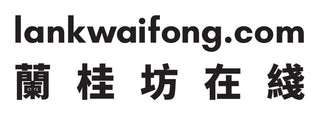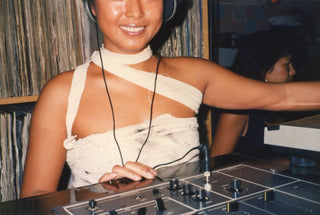“Where do you go when the record is over…”
In 1977, Dec. 16 was no ordinary Friday. It was the day history was made with the release of hit American dance drama “Saturday Night Fever.” Featuring John Travolta as a young Italian-American named Tony, who spends his weekends dancing and drinking at a local discothèque. The film gained commercial success (along with its soundtrack by the Bee Gees), helped to popularise disco around the world, and made a huge impact on pop culture.
This includes the opening of New York’s Studio 54 within the same year and the launch of Disco Disco later in 1978 on the other side of the globe, along with other iconic nightlife and LGBTQ+ spots in Hong Kong that followed thereafter.

Source: TIME Magazine
The Club That Started It All
Featuring an Egyptian vibe, Disco Disco was born in a drab basement at D'Aguilar Street in Lan Kwai Fong (LKF), Central. LKF isn’t what you would call the centre of nightlife, or even a place for nightlife like Kowloon was back then - since it was home to flower stalls and garment warehouses - but the opening of Disco Disco was the starting point.

Gordon Huthart, the founder of Disco Disco and an out gay Eurasian man, wanted a place where everybody regardless of race, class, and sexual orientation can have fun while being themselves. Being the son of then-managing director of Lane Crawford, a retail company that operates luxury department stores, he frequented The Scene (a modern club in The Peninsula that closed in 1977) where socialites gathered at its VIP tables. But since homosexuality was illegal at the time, he would often be removed from the dancefloor and thrown out for dancing with men.
What Huthart did (and continued doing) was a big no-no, yet he wanted to get his point across, some which Andrew Bull, a DJ at The Scene who later eventually became a resident DJ at Disco Disco in 1979, witnessed first-hand.

Andrew Bull, Source: The Beijinger
“So, it was very dangerous to be gay in those days, but when I was DJing at The Scene, Gordon would come down and deliberately dance with his boyfriend, knowing security would bundle them off the dancefloor and throw them out. He was like a gay suffragette,” he told That’s Shanghai.
“Gordon was quite well-funded relative to anybody else at [that] time, and [he was] determined to make a statement. So, when Studio 54 became the talk of New York, he said, ‘Right, we’re going to do Studio 54 for Hong Kong.’” he added.

Disco Disco immediately became an “it” spot, with local and international big names such as Madonna and Rod Stewart rubbing shoulders with the average local partygoer on the dancefloor. It changed the game for nightlife and set off the sparklers to welcome a new era for Central’s Lan Kwai Fong.
There’s No Way But Up
Apart from being an all-inclusive space for the disco craze, Disco Disco’s success was likewise attributed to the opening of the new MTR line that provided convenient cross-harbour transport for revellers and the club not having a major competition in the area. This changed, though, when nightlife impresario Christian Rhomberg launched his café-slash-nightclub 1997 (inspired by the handover) in 1982.

Club 1997. Source: SCMP
What’s more, the former Austrian trade commissioner went so far as going on a trip around the world with the Disco Disco founder, experiencing the latest city and nightlife trends firsthand. Fresh with inspiration, Huthart lit the early sparks that set the LKF streets alight with lively bustle.
1997 was a hit like its neighbour club. It attracted an exclusive crowd and remained popular with the city’s disco-loving LGBTQ+ throughout the 1980s and 1990s.
But LKF’s growth didn’t stop there, as the following year (1983) became an even more exciting time for the area’s rising reputation. Inspired by the potential of this small ordinary area in Central, business magnate Allan Zeman — who will later be known as the “Father of Lan Kwai Fong” — opened California restaurant and bar with the idea of having a less stuffy place to socialise. No suits nor ties required, just a casual setting for everyone.

Decked in a light wood and pastel-coloured motif, California was the kind to transform into a cool place to party at night where tables are moved to give more space for a DJ and guests of all orientations and race to bring their grooves out. Together with Disco Disco and 1997, these three establishments became the big names in Hong Kong’s disco and nightlife scene.
“Lan Kwai Fong was a very different place more than 30 years ago; it was a small alleyway dominated by flower shops and warehouses. But I saw a lot of beauty and potential in the area and decided to open California, a restaurant that turned into a nightclub in the evenings. And it all went from there,” Lan Kwai Fong Holdings (LKF Group) Chairman Allan Zeman said.
Zeman later bought the building where California sits in 1988 and the California Tower next to it in 1992. Both have been demolished and rebuilt together to open a new 26-story California Tower in 2016, which is now home to bars, cafes, and restaurants, including LKF Group’s four restaurants, as well as Hong Kong’s hub for queer-centric entertainment - Petticoat Lane.
Sources:
Hidden Hong Kong: A history of Hong Kong nightlife | Localiiz
Andrew Bull on His time at The Epicentre of HK’s Music Scene (prestigeonline.com)
Legendary Hong Kong Impresario Andrew Bull and Wife Sally Kwok – That’s Shanghai (thatsmags.com)
PressReader.com - Digital Newspaper & Magazine Subscriptions
The Complete History of Lan Kwai Fong | South China Morning Post (scmp.com)
How Lan Kwai Fong Group’s Jonathan Zeman Is Navigating The Coronavirus Pandemic (forbes.com)


